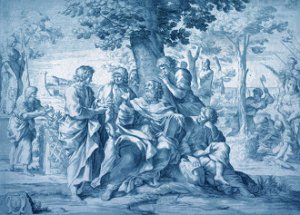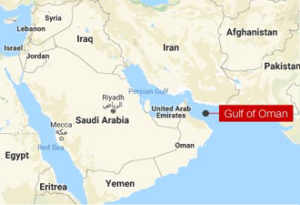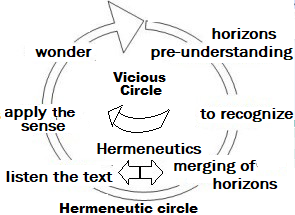
Arquivo para a ‘Social Network’ Categoria
Lack of balance and Being
An analysis of Western culture cannot be complete without an understanding of Anger. Various authors have analyzed the issue. Byung-Chul Han recalls that one of the first words in Homer’s Iliad begins: “Aira, Goddess, celebrates the wrathful Achilles, who brought so many sorrows to the Achaeans and cast countless souls into Hades,” but that’s not all.
complete without an understanding of Anger. Various authors have analyzed the issue. Byung-Chul Han recalls that one of the first words in Homer’s Iliad begins: “Aira, Goddess, celebrates the wrathful Achilles, who brought so many sorrows to the Achaeans and cast countless souls into Hades,” but that’s not all.
Aristotle defines anger as: “a desire, accompanied by pain, for perceived revenge, on account of a perceived disregard for an individual or his neighbor, coming from people from whom disregard is not expected” (2.2.1378a31-33) wrote in Rhetoric, but Peter in his essay Anger and Time reframes this psychoanalytical view that reduces the feeling to a mere escape valve for unfulfilled desires and rediscovers it as a 21st century political concept.
The author says: “While the link between spirit and resentment was stable – the demand for justice for the world – whether beyond earthly life or in the history that takes place – was able to take refuge in fictions that have been dealt with in detail here: in the theology of the wrath of God and in the world timotic economy of communism” (Sloterdijk, 2021), which takes on a controversial theme (image is part of book cover).
What is certain is that there is anger on both sides, and the “already” but “not yet” that was discussed in the previous post does not reside in them, because both thoughts are affiliated with modern idealism, and this is the central criticism of Kant and Hegel’s German idealism, they do not point to a new idealism.
In it there is an absence of pain, which precedes com-passion, more than an act of mercy (miseri cordis, of the heart), it is an act of adherence and justification of the existential peripheries, where the pain of justice resides, but as existential it also resides in disillusioned and tired hearts.
Contemplation and the already and not yet, which reaches both the earthly and the divine spheres, requires a vita activa which is that of psychological, family and social equilibrium which does not exclude the other, not infrequently those who defend only earthly or only divine justice, do not have a proactive action that leads to the encounter of pain, widely analyzed in Byung-Chul Han’s “Palliative Society”, eliminated pain by transferring to earthly or divine “paradise”, without our com-passion.
The balance of Being, which is already realized, but not yet (completely), has something to say about justice, the common good and peace.
Sloterdijk, P. (2021) Ira e tempo. Trad. Marco Casanova. Brasil, São Paulo: Estação Liberdade.
Noetics, Ontologie and War
For Plato, noesis is superior to dianoia, which is discursive and apparently logical, while the former is a high possible mental activity, inhabiting the sphere of Good and Harmony.
is discursive and apparently logical, while the former is a high possible mental activity, inhabiting the sphere of Good and Harmony.
It is a possibility of access to the “divine” world (Plato’s highest good which is in the eidos), it is transcendent, absolute, beyond ordinary human reasoning, philosophers pursue it without even touching on the question of the belief in a higher God where noesis “dwells”, it is not Being, but a mental attitude.
Dianoia, on the other hand, while it inhabits logical, mathematical and technical reasoning, is attached to what the mind can grasp of the earthly world, even though it admits to mistakes, truths that are not absolute and sometimes confusing, they inhabit the daily life of the human being, who is also disconnected from Being.
There is a foundational line that goes from phenomenology to the anthropotechnics of Peter Sloterdijk and Byung-Chul Han, essentially involving the question of Being, the link between noesis and noema, weakened by the bombardment of narratives that the digital universe has provided, but the forgetting of being, the absence of interiority have led to what Chul-Han calls “deauritization” and “pure facticity”:
“The disenchantment of the world expresses itself as de-auritization. Aura is the radiance that elevates the world beyond its pure facticity, the mysterious veil that envelops things” (Han, 2023, p. 80).
It’s not a question of denying facticity, but of not allowing its noesis, that is, the initial comprehension in the mind in all its aura, it makes a “narrative selection”, in the words of Byung-Chul (talking about photography): “It extends or shortens the temporal distance. It skips years or decades. Narrativity is opposed to chronological facticity” (Han, 2023, p. 81).
These are the lies of wars, of all wars because they hide their real motives, but particularly of current wars because they use narratives to change what is evident if read in chronological facticity, in a very current example, last week’s bombing of a hospital for the elderly in Ukraine (photo) and the bombing of UN bases in Lebanon, this correlates with cruelty and the absence of any narration to justify them.
Peace lies in the hearts and authorities that maintain the aura of hope, the spirit of solidarity.
Han, Byung-Chul. (2023) A crise da narração. Transl. Daniel Guilhermino. Brazil, Petrópolis: Vozes.
Wars and narratives
Aeschylus, writing from ancient Greece, is the author of the phrase: “truth is the first victim of war”, retired Russian general Andrey Gurulyov, spoke on the Russia-1 channel, pointing out what Russia’s targets would be, that it was preparing for a major war, Islamic Jihad is a group with strong influence in Iran and which preaches the end of Israel, its discourse is theocentric and not geopolitical.
author of the phrase: “truth is the first victim of war”, retired Russian general Andrey Gurulyov, spoke on the Russia-1 channel, pointing out what Russia’s targets would be, that it was preparing for a major war, Islamic Jihad is a group with strong influence in Iran and which preaches the end of Israel, its discourse is theocentric and not geopolitical.
These are just a few half-truths about the war. Of course, Israel and Ukraine are allies of the West in the economic geopolitical struggle to preserve the rights of companies and big capital, which is why both sides find it difficult to understand “civilizational” peace.
In Plato’s dialogue Theaetetus, regarded as one of the first in history on relativism, the ideas of appearance, truth and soul are combined; Socrates’ first demand to start the dialogue is that Theaetetetus abandon his initial ideas, and when he asks what knowledge is and gets an answer about geometry and other arts, Socrates replies ironically: “You are noble and generous, friend, for they ask you for something simple and you offer multiple and diverse things.” The second question is how to reach knowledge.
The second question is how to arrive at knowledge, and Theaetetetus’ answer is “sensation” (or perception). Socrates indicates that we must abandon the “familiarity” we have of things, he says in the dialogue: “It seems to me that he who knows something perceives what he knows, and to say the thing as it now manifests itself, knowledge is nothing more than sensation.”
The second answer is an advance on the first, because this is how the Greeks considered them: “On this all the wise men, one after the other, except Parmenides, must agree: Protagoras, Heraclitus, Empedocles and, among the poets, those who are at the top of each of the compositions, Epicarmo, in comedy, and Homer, in tragedy…”, quoting the Greeks up until that period, the so-called pre-Socratics.
Thus, until then, truth was confined to sensation. When he begins his dialogue with Protagoras, he arrives at the idea of the first misconception of relative truth: “The man who is the measure of all things would not, in the end, be a man confined to the restricted circle of his most immediate experience and of what seems true to him alone,” and this refers to appearance.
Using this idea of “familiarity” with things, Plato opens up a crisis in the Greeks’ idea of knowledge, and thus opens up a new ontological path about the soul, starting from Homer’s “heart of the soul” (194c), there would hardly be any occasion for error, because it (the soul) would promptly make the correct identification of the current impression, breaking down prejudices.
Plato. (2010) Teeteto. Trad. Adriana Manuela Nogueira e Marcelo Boeri. LisboN: Fundação Calouste Gulbenkian.
Totalitarianism and innocent lives
In war the first victim is the truth, a phrase attributed to Aeschylus of ancient Greece, but the tragic thing is the proportion of innocent victims, pure and elevated souls that war consumes because of the dread that totalitarian leaders have of freedom, free people and true humanism.
attributed to Aeschylus of ancient Greece, but the tragic thing is the proportion of innocent victims, pure and elevated souls that war consumes because of the dread that totalitarian leaders have of freedom, free people and true humanism.
There are countless cases, from hospitals and schools being bombed to cases of torture and cruelty to people who would bear great fruit for an elevated humanity, and that’s exactly why sick minds fight them.
I discovered among these various names, through a student, a Jewish woman named Etty (Esther) Hillesum, a Dutch daughter of Dutch father Louis Hillesum and Russian mother Rebecca Bernstein (Riva), a professor of ancient languages, from whom the interest in languages was probably born, but she goes to study Slavic languages, perhaps inspired by her mother, and then takes a master’s degree in law.
Her diaries and letters were written during the Nazi occupation of Amsterdam, and among the first books I came across were “Une vie bouleversée” (A Life Turned Upside Down) and 15 Days of Prayer with Etty Hillesum (published in Portuguese by Paulinas).
One of her phrases “inside me there is a deep well”, where inside there is sand and stones that prevent you from reaching something clearer, reveals a mystical path and the search within her to reach a deeper interiority, it is a refuge, I would say a spiritual resistance to Nazism and the climate that was generated around her.
Her relationship with psychiatrist Julius Spier (who was influenced by Karl Yung), initially for treatment and then for personal involvement, awakened her intellectuality, and in March 1941 she began to write her first of eight diaries.
In June and July 1942, he deepened his mystical dialog, writing: “God has become an interlocutor…” and it is in this context that we can talk about his writings on prayer.
He wrote in “15 Days of Prayer with Etty Hillesum”: “He took me by the hand, so to speak, and said to me: ‘That’s how you have to live’.” On the first day, he said of the second: “An hour of peace, you have to learn … I’m going to turn inward … half an hour of gymnastics and half a prayer of meditation”, the third day: ‘Hineinhorchen: listening inwardly’, listening to oneself, to others and to God.
This is how Etty’s itinerary goes: day four: “forgive my parents and their limits”, day five: “surrender to yourself and to your own guardianship”, in short, of a pure and innocent soul who indicates not just a path of repetitive and meaningless prayers, but an interior path.
One of the millions of innocent souls who died in concentration camps, she met her death in the Auschwitz camp at the young age of 29. Her writings are pure and profound, reminiscent of the purity of children and of people who live a human humanity.
Ferrière, P., Meeûs-Michiels, I. (2016) 15 dias de oração com Etty Hillesum (15 days of prays with the Etty Hillesum). Brazil, São Paulo: Paulinas editions.
Totalitarianism and political ontology
Wars always revolve around totalitarian governments, because they have a unilateral worldview, which despises the cultures and views of other peoples and thus wants to subject their peoples, who generally accept different cultures, to a single worldview.
Hannah Arendt faced up to these regimes in her 1951 book, “The Origins of Totalitarianism”. She was convinced that after the end of the Second World War, the problem didn’t end there; she spoke of hell, nightmares, Kafka’s Metamorphosis, onions and even the ugliness of an omelette, among many other things, when the stories of Auschwitz came into her hands.
In trying to describe the totalitarian experience, Arendt was faced with the dilemma of how this experience could not be explained, not by political philosophy or traditional concepts, not just by the culmination of a process of developing something from a past, but in what Heidegger called the “forgetting of being”.
I’m reminded of a striking phrase by Lygia Fagundes Telles, who died on April 16, 2022, on her 99th birthday: “There is no coherence to mystery or logic to absurdity.” Dictators and their narratives only have logic in systematic propaganda, and in a claque of other fanatics who support them and identify with them, in short, a partial narrative of reality.
This form of narrative that Arendt wrote was opposed by a contemporary like Voegelin, about whom she responded to her analysis: “I have not written a history of totalitarianism, but an analysis in historical terms of the elements that crystallized in totalitarianism” (ARENDT, 2007, p. 403).
He also wrote in “The Crisis of the Republic” that the first fundamental difference between totalitarianism and the other categories present in history lies in the fact that totalitarian terror “turns not only against its enemies, but also against its friends and defenders”; a second difference would be its radicalism, which makes it capable of eliminating not only the freedom of action of individuals, as tyrannies did through political isolation, eliminating not only opponents but also unreliable allies, there is a clear parallel in today’s war.
In her note number 81, Arendt wrote: “The total number of Russians killed during the four years of war is estimated at between 12 and 21 million. In a single year, Stalin exterminated some 8 million people in Ukraine alone (see Communism in action, U. S. Government, Washington, 1946, House Document no. 754, pp. 140-1).” Again, the similarity with the current war is no coincidence, and after Butcha then Mariupol had a similar drama to Gaza (photo), but there are only ideological partial narratives.
The last topic of Arendt’s book is: “Ideology and terror: a new form of government”. If you’re interested in avoiding totalitarianism, just read it. It’s likely that we’ll become aware of this terror and stop feeding it in our day-to-day lives.
Arendt, H. (2007) Origens do Totalitarismo. Trad. Roberto Raposo. Brazil, São Paulo: Companhia das Letras..
Believe in divine protection and do good
Despite the climate of war, we must wish for peace. We warned in yesterday’s post that an escalation was imminent and it has happened, the climate and hate speech on both sides in the current global polarization is advancing and only those who continue to do good will be at peace.
We warned in yesterday’s post that an escalation was imminent and it has happened, the climate and hate speech on both sides in the current global polarization is advancing and only those who continue to do good will be at peace.
It seems heroic, innocent or even childish to continue to wish for and do good, but this is the only way not to fall into the trivialization of evil, polarization and inhuman discourse.
Yesterday, on Monday night in Brazil and early Tuesday morning in Israel, more than 180 missiles from Iran were launched at Israel, hypersonic missiles that traveled in 12 minutes until they hit Jewish soil; the number of victims and targets hit were not disclosed.
The involvement of the Arab world, Turkey, Lebanon and Syria have already declared their support for the attack, which had Palestinian celebrations in Gaza, takes the confrontation to a global scale, in the United States, Biden asked the forces in the area to defend Israel, which promises retaliation to Iran.
The possibility of the closure of the Gulf of Oman will affect the price of oil worldwide and, with it, the cost of products that depend on transportation and global logistics.
Only by adhering to goodness, peace and your daily life can we remain emotionally balanced and serene, even in the face of adverse circumstances, where everyone gives in to panic, hatred and the trivialization of evil.
For the philosopher Hannah Arendt, the banality of evil is the phenomenon of our character’s refusal to reflect and the tendency not to assume the consequences of actions that do not assume the consequences of evil, and thus prevent us from adhering to the good.
We only have protection in our spirit and soul when we resist the temptation to evil, what the philosopher and educator Edgar Morin also calls “resistance of the spirit” in the midst of polarization, hatred and war; by doing good actions we attract peace around us and divine protection.
The good and political ontology
Although the philosophical discourse on the good is broad and varied, modernity has lost part of this foundation when it is linked to the question of Being. In the political dialogue, for example, the development of Hannah Arendt and her works: “The Banality of Evil” and “The Human Condition”, or Freud’s “The Evil of Civilization” or Paul Ricoeur’s “The Symbolic of Evil” do not appear.
good is broad and varied, modernity has lost part of this foundation when it is linked to the question of Being. In the political dialogue, for example, the development of Hannah Arendt and her works: “The Banality of Evil” and “The Human Condition”, or Freud’s “The Evil of Civilization” or Paul Ricoeur’s “The Symbolic of Evil” do not appear.
The latter three can rework, in tragic dimensions, what we claim is the absence of a political ontology, what Hannah Arendt seeks in her texts.
Paul Ricoeur, explaining the symbolism of evil, wrote of individual attitudes that seek to “console” the victims of evil as a causal motive:
“To people who suffer and who are so ready to accuse themselves of some unknown fault, the true pastor of souls will say: God certainly didn’t want this; I don’t know why; I don’t know why…” (Paul RICOEUR, ‘Le scandale du mal’, op. cit., p. 60), looking at the origin of an evil, which the majority cannot explain, although they feel it.
The traditional philosophical discourse on the good revolves around either utilitarianism (the good is what maximizes happiness, in Stuart Mill), deontologism (the good is acting in accordance with moral duty) and eudaimonism (the supreme good is happiness, achieved through virtue).
Kant elaborates that the supreme good is the good will, that is, acting out of duty and not inclination, and so in contemporary philosophy (with an idealist foundation) the good ranges from virtue ethics to care ethics, but the absence of foundational values on evil ends up incorporating relativism and falls into the political discourse of populism and modern sophism.
Although the Greeks touched on the ontological question, the idea of Platonism that the good is the highest form of reality, the cause of what exists and the ultimate goal of knowledge, modernity is paralyzed under the aegis of an evil that is not only structural, but that affects being: Arendt’s banality of evil and Freud’s civilizational malaise.
Arendt shows that there is a fundamentally political gap in current thinking, which falls into the category of the plurality of philosophical thought. Before Hitler’s rise, Arendt’s search went on to other philosophical questions that also went in the direction of the good. In her doctoral thesis, supervised by Karl Jaspers, she discussed “The concept of love in St. Augustine”, but then she revisited the ontological question and went on to analyze the question of totalitarianism.
On the question of Love (agape) in his doctorate, it remains unfinished, according to his own supervisor, but even if evil seems to prevail, it is the good that we must pursue and only it can free us from the historical condition where evil seems to triumph.
Latent war and imminent danger
There is hardly any sector that has a strong enough voice for the idea of peace other than the surrender of one of the sides, neither in Israel’s war against the extremist groups Hezbollah and Hamas, nor in the Ukraine-Russia war.
voice for the idea of peace other than the surrender of one of the sides, neither in Israel’s war against the extremist groups Hezbollah and Hamas, nor in the Ukraine-Russia war.
Russia’s foreign minister, Sergei Lavrov, said at the UN last Saturday (28/09) that it is a danger to try to “fight for victory against a nuclear power”, in other words, that if necessary they will use nuclear weapons, while Israel’s prime minister said that “the work is not yet finished” and “challenging days lie ahead”, these are hate speeches.
In Israel, the army has sent two brigades to the north of Israel and is deploying three reserve battalions, which seems to indicate a ground incursion into Lebanon, while Russia continues to call for more soldiers, including people from other countries who will be paid, to further expand the country’s military contingent, which all indications are that it’s not just for Ukraine.
The death of Hezbollah leader Hassan Nasrallah in fighting in southern Lebanon (photo), while Netanyahu and Joe Biden say he was responsible for the murder of a large number of Israelis and Americans, but in Iran, Yemen and Palestine he was seen as a “martyr”.
Also, the proposal by Brazil and China, which was initially supported by Russia, has been given the caveat by the Russian authorities that a Russian withdrawal from the occupied territories does not lead to peace because Russian citizens living in that region feel threatened.
In short, both in rhetoric and in actions, the imminent danger of an even greater escalation of wars does not seem to be giving way on any essential point, and this weakens the UN and the nations that want a greater balance in international relations between regimes and cultures that are different, but that can always coexist from the point of view of ordinary citizens.
The economic interests behind these wars, and those of their allies on both sides, are blatant, albeit hidden, so in this field too we need to rethink economic relations, without this implying the surrender of one of the parties.
The continuity of the discourse and the escalation of wars in these most sensitive areas is visible and not addressing these aspects hides the real possible ways out and does not favor peace.
Truth, language and method
The understanding of any phenomenon necessarily involves language and method, language as a means of communicating the phenomenon and method as a strategic path by which the truth can be reached on some issue.
necessarily involves language and method, language as a means of communicating the phenomenon and method as a strategic path by which the truth can be reached on some issue.
Dogmatic and ideological truths have led to narratives and distortions of reality, even those that pass through the imaginary, which is not necessarily an untruth, but often an analogy or metaphor to tell the truth.
Language as the “dwelling place of being” is for the phenomenological and ontological interpretation of truth, i.e. that which goes through the question of the “being” of the “being” is the basis for communicating the truth between source and destination, but it cannot be confused with sender and receiver.
When we have an “entity” as a means of communication, be it analog or digital (another confusion is to give analog an ontological category), it means that it is restricted to being just a “means” of communication, so it makes the message encoded in a signal, for example an analog acoustic wave (fm radio for example) or a signal encoded in zeros and ones, in this case digital, both of which cannot be interpreted as “the dwelling place of being”, but only code, that is, something more conducive to the entity than to being.
The signal aimed at reducing noise and authenticating the message that has been coded should not be confused with the message itself, since it comes from Being and carries within itself not a logic, but an onto-logy, in other words, something originally from Being.
It is in this ontology that we can understand the meaning of dialogue, even between logically opposed messages, since ontologically they can share a fusion of horizons and can then create a method, developed by Heidegger and formalized by Hans-Georg Gadamer.
Gadamer’s explanation of the hermeneutic circle is expressed as:
“The circle must not be degraded to a vicious circle, even if this is tolerated. In it there is a positive possibility of the most original knowledge, which, of course, will only be adequately understood when interpretation understands that its first, constant and ultimate task remains not to receive beforehand, by means of a ‘happy idea’ or by means of popular concepts, either the previous position or the previous vision, but to ensure the scientific theme in the elaboration of these concepts from the thing itself”. (GADAMER, 1998, p. 401).
This is why Gadamer’s studies, entitled Philosophical Hermeneutics, cover many peculiar aspects of his studies and writings, with a contribution that goes beyond philosophy itself, linguistics and, to a certain extent, theological hermeneutics, from which came the work and studies of Schleiermacher, who spoke of “spheres” and “circles” in his studies on hermeneutics.
It is only in this idea of the fusion of horizons, of going beyond the vicious circle, that we can understand an inverse reasoning of one against all, and understand the dialog between opposites.
GADAMER, Hans-Georg (1998). Verdade e Método: Traços fundamentais de uma hermenêutica filosófica. Transl. Flávio Paulo Meurer. 2a. ed. Brazil, Petrópolis: Vozes.
Sophists and relativism
The political issue and the current polarization involve an age-old problem: sophistry. Its origin in ancient Greece is when Plato started a school for training philosophers to create men of the “polis” who would serve not only authoritarian governments, but the Greek city-states.
involve an age-old problem: sophistry. Its origin in ancient Greece is when Plato started a school for training philosophers to create men of the “polis” who would serve not only authoritarian governments, but the Greek city-states.
The speech in Theaetetus on the nature of knowledge, written in 369 BC, is where the confrontation between truth and relativism appears, at least clearly for the first time in philosophy.
In it, a character called “the Stranger from Elea”, who would have been a companion of both Parmenides and Zeno”, elaborates on three important figures in the Platonic school: the sophist, the politician and the philosopher, but in it he only did not write about the definition of the philosopher that would be investigated in other texts, but the politician for him, par excellence, would be the philosopher, who among other things should have ‘Aretê’, that is, virtues.
The reason there is a coincidence with current political discourse, and this origin of relativism, can be seen in the explanation he gives about reality and the image they seek to represent, both of which are not what they represent, but are clearly something else, for example the image of a house can look like and show very well what a house is, without being one.
Just as the image of a dog is characterized by not really being a dog, the content of a false speech is characterized by not being what it really is, both say something about the truth, but are in essence different things.
Despite this, an ontological contradiction remains in the discourse, as the Stranger emblematically announces: “such a statement presupposes being and not being”, Parmenides’ classic thesis, although the root of his thought is logical and not ontological.
Thus, appearance and image do not coincide with the real truth, although they may confuse an inattentive viewer, they are not the same thing, discerning them is an essential condition for exercising truth, so we may not remain in the truth when we embark on “images”.
There is a popular saying, it is not known who first said it, but in war the first thing that dies is the truth, and its more than tragic consequences lead to a crisis of who we really are as humanity and with our inalienable rights that are stolen.

